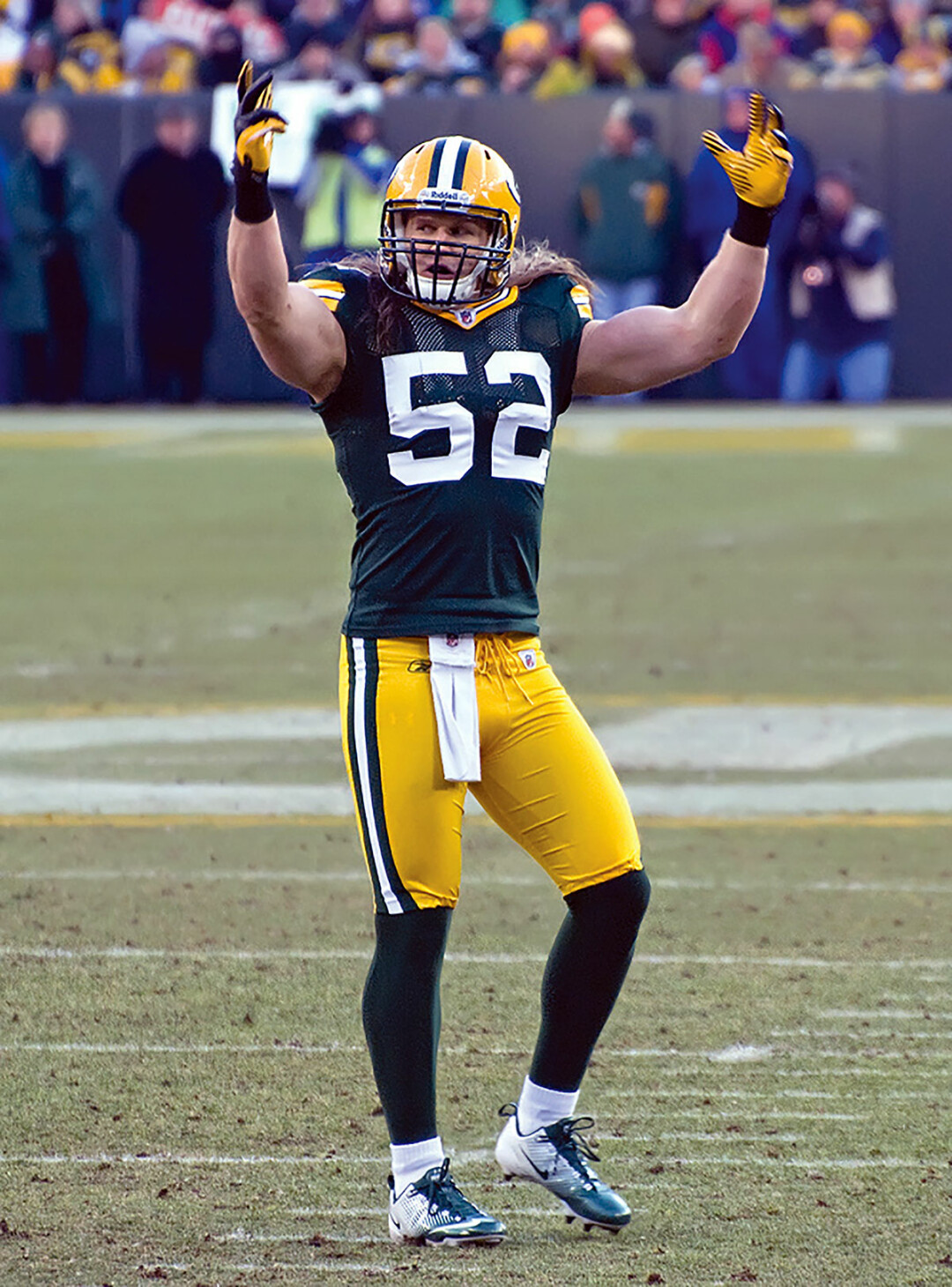Football Is Changing. Will Fans Change With It?
concussion concerns, offensive focus are examples of sport’s evolution

Clay Matthews is, perhaps, the second-best-known current Green Bay Packer. While he may never achieve Pro Football Hall of Fame enshrinement, he will be considered one of the better Packers of the Aaron Rodgers/Mike McCarthy era.Matthews is generally thought to be in the declining period of his career, yet he may now be at a peak moment in national football awareness, all because he tackled a quarterback. Twice.
The “Clay Matthews Rule” refers to roughing-the-passer calls on Matthews in weeks two and three of the current NFL campaign; these happened on plays that, most often, would have been considered regular defensive plays. Outrage arose from Packers fans and followers of the game. To many, this seemed a continuation of the league’s neutering of its product. Once again, in the midst of a football season, a chorus has arisen declaring its intention to stop watching America’s true athletic pastime.
Is football finally about to go the way of the oft-cited boxing and horse racing, two once-dominant sports now relegated to, well, somewhere in sports media? No, it is not: Football has significant problems, but it does not have a fatal disease.
Since the peak early this decade of NFL popularity, ratings-wise, issue after issue has confronted the league and its fans, causing many to consider abandoning the sport. Domestic violence, all things national anthem, and questionable calls on the field involving catches, helmet-to-helmet hits, and now tackling have been contributors. I wrote a few years ago about wincing during a season-opening Packers-Bears game, thinking about the CTE-inducing concussions the players could be receiving.
Ratings have gradually declined in recent years, probably due to an accumulation of the aforementioned reasons. Yet, through all of this, were you not a little excited as a local sports fan when Regis went to Madison in 2016 and won a title? Were you not pleased to see the Blugolds rack up two wins in their first two games this year – the first time they’ve done so since 2010? Were you not following each play of the Badgers in Iowa City on a recent Saturday night? Did you really not care about the Packers’ early-season struggles?
I am as frustrated as others with the inconsistent calls seen in the pro game. Yet when I hear people say they’re now going to stop watching football, I ask: If the Packers get to a Super Bowl sometime in the future and bring their 14th title to Titletown, are you really gonna spend that early February Sunday evening watching counter-programming on another network? Will you really hear “The Packers win the Super Bowl!” and shrug? Be honest: You won’t.
The game is changing, as it has changed for decades (read Joe Niese’s new book on Gus Dorais for a prime example). It is now evolving towards safety and an offense-orientation; the former makes parents feel comfortable allowing their kids to start playing the sport, keeps star quarterbacks on the field, and is morally imperative; the latter reflects what most people enjoy. To the latter point: What Chippewa Valley football game is most-remembered from the earlier portion of this prep season? I argue it is Chippewa Falls’ 67-65 touchdown-a-thon victory over Memorial.
Plenty of fans appreciate multiple styles of play, but the more casual fan is drawn towards points. We’ve witnessed this in basketball, baseball, hockey, and soccer: Whenever scoring is higher, interest and ratings generally grow as the broader public gets drawn in. A memorable line from a baseball-themed commercial in the ’90s encapsulates this effect: “Chicks dig the long ball.” The line is crass by modern standards, yet its essence gets to why more offense means more fans: If you’re in a grocery store with a Packers game on the TVs, what will make you stop in the checkout lane and look up while possibly blocking the flow of people – a sack or a 40-yard touchdown bomb? This happened to me, and the bomb got my attention.
We all have our breaking points, and perhaps enough concerns have tarnished the enjoyment of football that breaking points are being reached across America. The concussion issue could still lead to a sizable decline in the sport’s participation. Yet the promise of a touchdown will bring most of us back – as long as the NFL doesn’t tackle itself.




















